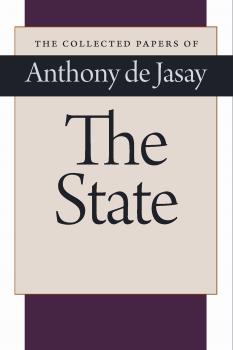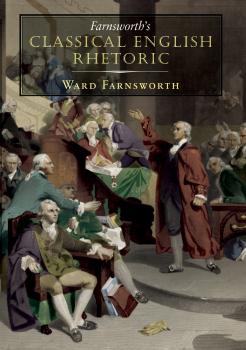ТОП просматриваемых книг сайта:
ЛИТМИР - LITMIR.BIZ - Электронная библиотека
Скачивание или чтение онлайн электронных книг.Аннотация
The Law of the Constitution elucidates the guiding principles of the modern constitution of England: the legislative sovereignty of Parliament, the rule of law, and the binding force of unwritten conventions.A. V. Dicey (1835–1922) was an English jurist, Vinerian Professor of English Law at Oxford University, and author of, among other works, The Law of the Constitution. Please note: This title is available as an ebook for purchase on Amazon, Barnes and Noble, and iTunes.
Аннотация
This edition contains the thirty-nine essays included in Essays, Moral, Political, and Literary that made up Volume I of the 1777 posthumous Essays and Treatises on Several Subjects. It also includes ten essays that were withdrawn or left unpublished by Hume for various reasons.Eugene F. Miller was Professor of Political Science at the University of Georgia from 1967 until his retirement in 2003. Please note: This title is available as an ebook for purchase on Amazon, Barnes and Noble, and iTunes.
Аннотация
The State is a brilliant analysis of modern political arrangements that views the state as acting in its own interest contrary to the interests of individuals and even of an entire society. As Nobel laureate James Buchanan has observed, Jasay subjects the state to a “solid, foundational analysis, grounded in an understanding of economic theory, informed by political philosophy and a deep sense of history.” The results include a “devastating critique of the absurdities of modern welfare economics.”Jasay traces the logical and historical progression of the state from a modest-sized protector of life and property through its development into what he believes to be an “agile seducer of democratic majorities, to the welfare-dispensing drudge that it is today.” Can, Jasay wonders, this seemingly inexorable expansion of the state be stopped? Or “is the rational next step [for the state] a totalitarian enhancement of its power?”Anthony de Jasay is an independent theorist living in France.Please note: This title is available as an ebook for purchase on Amazon, Barnes and Noble, and iTunes.
Аннотация
By examining the thought of four seminal thinkers, Shirley Robin Letwin in The Pursuit of Certainty provides a brilliant record of the gradual change in the English-speaking peoples’ understanding of “what sort of activity politics is.” As Letwin writes, “the distinctive political issue since the eighteenth century has been whether government should do more or less.” Nor, as many historians argue, did this issue arise because of the Industrial Revolution or “new social conditions [that] aggravated the problem of poverty” but, Letwin believes, because of the “profoundly personal reflection” of major thinkers, including Hume, Bentham, Mill, and Webb. David Hume, for example, believed that to “reach for perfection, to seek an ideal, is noble, but dangerous, and is therefore an activity that individuals or voluntary groups may pursue, but governments certainly should not.”By the end of the nineteenth century, as Letwin observes, Beatrice Webb came to “equate the triumph of reason over passion with the rule of science over human life.” Thus did the “pursuit of certainty” displace the traditional English understanding of the limitations of human nature—hence the necessity of limits to governmental power and programs. Consequently, in our time, “Politics was no longer one of several human activities and at that not a very noble one; it encompassed all of human life” in quest of philosophical “certainty” and social perfection. The Liberty Fund edition is a reprint of the original work published by Oxford in 1965.Shirley Robin Letwin (1924–1993) was a Professor of Political and Legal Philosophy at Harvard, Cambridge, and the London School of Economics.Please note: This title is available as an ebook for purchase on Amazon, Barnes and Noble, and iTunes.
Аннотация
This volume opens with Locke’s Letter Concerning Toleration (1689) and also contains his earlier Essay Concerning Toleration (1667), extracts from the Third Letter for Toleration (1692), and a large body of his briefer essays and memoranda on this theme. As editor Mark Goldie writes in the introduction, A Letter Concerning Toleration “was one of the seventeenth century’s most eloquent pleas to Christians to renounce religious persecution.”This Liberty Fund edition provides the first fully annotated modern edition of A Letter Concerning Toleration, offering the reader explanatory guidance to Locke’s rich reservoir of references and allusions.David Womersley is Thomas Warton Professor of English Literature at the University of Oxford. His most recent book is Divinity and State.Mark Goldie is Reader in British Intellectual History at the University of Cambridge. Please note: This title is available as an ebook for purchase on Amazon, Barnes and Noble, and iTunes.
Аннотация
"As befits a good Stoic, Farnsworth’s expository prose exhibits both clarity and an unflappable calm… Throughout The Practicing Stoic , Farnsworth beautifully integrates his own observations with scores of quotations from Epictetus, Seneca, Marcus Aurelius, Montaigne and others. As a result, this isn’t just a book to read—it’s a book to return to, a book that will provide perspective and consolation at times of heartbreak or calamity." — The Washington Post The most helpful and practical philosophy ever devised. The advice the Stoics provided centuries ago is still the best anyone has offered and it's as useful today as it was then—or more. Stoicism means knowing the difference between what we can control and what we can't, and not worrying about the latter. The Stoics were masters of perspective, always taking the long view while remembering that life is short. And they were deep and insightful students of human nature, understanding how we manage to make ourselves miserable as well as how we seek and can find fulfillment.The great insights of the Stoics are spread over a wide range of ancient sources. Ward Farnsworth brings them all together and systematically presents what the various Stoic philosophers said on every important topic, accompanied by an eloquent commentary that is clear and concise. The result is a set of philosophy lessons for everyone—the most valuable wisdom of ages past made available for our times.
Аннотация
Rosemary Verey was the last of the great English garden legends. Although she embraced gardening late in life, she quickly achieved international renown. She was the acknowledged apostle of the “English style,” on display at her home at Barnsley House, the “must have” adviser to the rich and famous, including Prince Charles and Elton John, and a beloved and wildly popular lecturer in America. A child of a generation born between the two World Wars, she could have easily lived a predictable and comfortable life, devoted to her family, church, and horses, but a devastating accident changed her life, and with her architect-husband, she went on to create the gardens at their home that became a mandatory stop on every garden tour in the 1980s and 1990s. At sixty-two, she wrote her first book, followed by seventeen more in twenty years. Her husband’s death, shortly after her career began, added a financial imperative to her ambition. By force of character, hard work, and determination, she tirelessly promoted herself and her garden lessons, traveling worldwide to lecture, sell books, and strengthen her network. She was a natural teacher, encouraging her American fans to believe that they were fully capable of creating beautiful gardens while validating their quest for a native vernacular. She also re-introduced the English to their own gardening traditions. Drawing from garden history and its literature, she developed a language of classical formal design, embellished with her exuberant planting style. Here is her story, recounted by Barbara Paul Robinson (a successful Manhattan attorney who worked with Ms. Verey as a volunteer), who saw her as both a person and a professional, and who was close to her for the last twenty years of her life. A demanding and sometimes truculent taskmaster, and a relentless perfectionist, Rosemary Verey, in her life as in her work, was the very personification of the English garden style.
Аннотация
"I must refrain from shouting what a brilliant work this is (præteritio) . Farnsworth has written the book as he ought to have written it – and as only he could have written it (symploce) . Buy it and read it – buy it and read it (epimone) .”—Bryan A. Garner, author of [i]Garner's Modern English Usage Ward Farnsworth details the timeless principles of rhetoric from Ancient Greece to the present day, drawing on examples in the English language of consummate masters of prose, such as Lincoln, Churchill, Dickens, Melville, and Burke.










